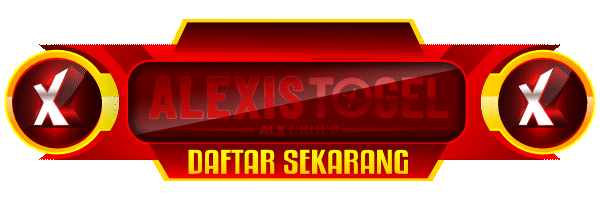Banyak diminati. 8 juta orang membeli ini dalam 24 jam terakhir.
Harga: Rp.5.000+
Normal: Rp 100.000+
Diskon segera berahir 21:07:47
Alexistogel # Akses Daftar Situs Togel dan Pasar HK Pools Resmi
Alexistogel menyajikan akses link daftar anti blokir situs togel dengan pasar hk pools resmi paling dicari para pemain togel online. Nikmati bonus premium, result akurat, bocoran angka jitu dengan peluang menang besar tiap hari.
Star Seller
Star Sellers have an outstanding track record for providing a great customer experience—they consistently earned 5-star reviews, shipped orders on time, and replied quickly to any messages they received.
-
1. Enter Name/Text
2. Color of Yarn (Default color is white yarn if none selected)
*This is oversized jumper, select one size smaller for a more fitting look0/1024
You can only make an offer when buying a single item
Star Seller. Penjual ini secara konsisten mendapatkan ulasan bintang 5, mengirim tepat waktu, dan membalas dengan cepat setiap pesan yang mereka terima.
Highlights
Alexistogel menyajikan akses link daftar anti blokir situs togel dengan pasar hk pools resmi paling dicari para pemain togel online. Nikmati bonus premium, result akurat, bocoran angka jitu dengan peluang menang besar tiap hari.
-
Pesan hari ini dan akan tiba pada: Sep 21-30
Alexistogel menyajikan akses link daftar anti blokir situs togel dengan pasar hk pools resmi paling dicari para pemain togel online. Nikmati bonus premium, result akurat, bocoran angka jitu dengan peluang menang besar tiap hari.
-
Pengembalian dan penukaran tidak diterima
Namun, silakan hubungi saya jika Anda memiliki masalah dengan pesanan Anda
-
Cost to ship: Rp 5.000
-
Ships from: Indonesia
There was a problem calculating your shipping. Please try again.
ALEXISTOGEL Perlindungan Pembelian
Berbelanja dengan percaya diri di ALEXISTOGEL, mengetahui jika terjadi kesalahan pada pesanan, kami siap membantu Anda untuk semua pembelian yang memenuhi syarat —
see program terms
Captcha failed to load. Try using a different browser or disabling ad blockers.
4.9 out of 5
(190.6k reviews)
All reviews are from verified buyers
Selain sistemnya stabil, komunitasnya juga enak. Informasi jelas, tidak ribet, dan saling membantu antar member.
gue saranin buat elo elo semua yang baru terjun ke situs togel utk gabung sama yang namanya Alexistogel, situs gurih sekali.
Selain sistemnya stabil, komunitasnya juga enak. Informasi jelas, tidak ribet, dan saling membantu antar member.
Saya memilih tetap di Alexistogel karena kepercayaannya terjaga. Dari awal sampai sekarang pengalamannya konsisten dan profesional.
Photos from reviews
This seller usually responds within 24 hours.
Smooth shipping Has a history of shipping on time with tracking.
Speedy replies Has a history of replying to messages quickly.
Rave reviews Average review rating is 4.8 or higher.
Alexistogel menyajikan akses link daftar anti blokir situs togel dengan pasar hk pools resmi paling dicari para pemain togel online. Nikmati bonus premium, result akurat, bocoran angka jitu dengan peluang menang besar tiap hari.








